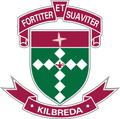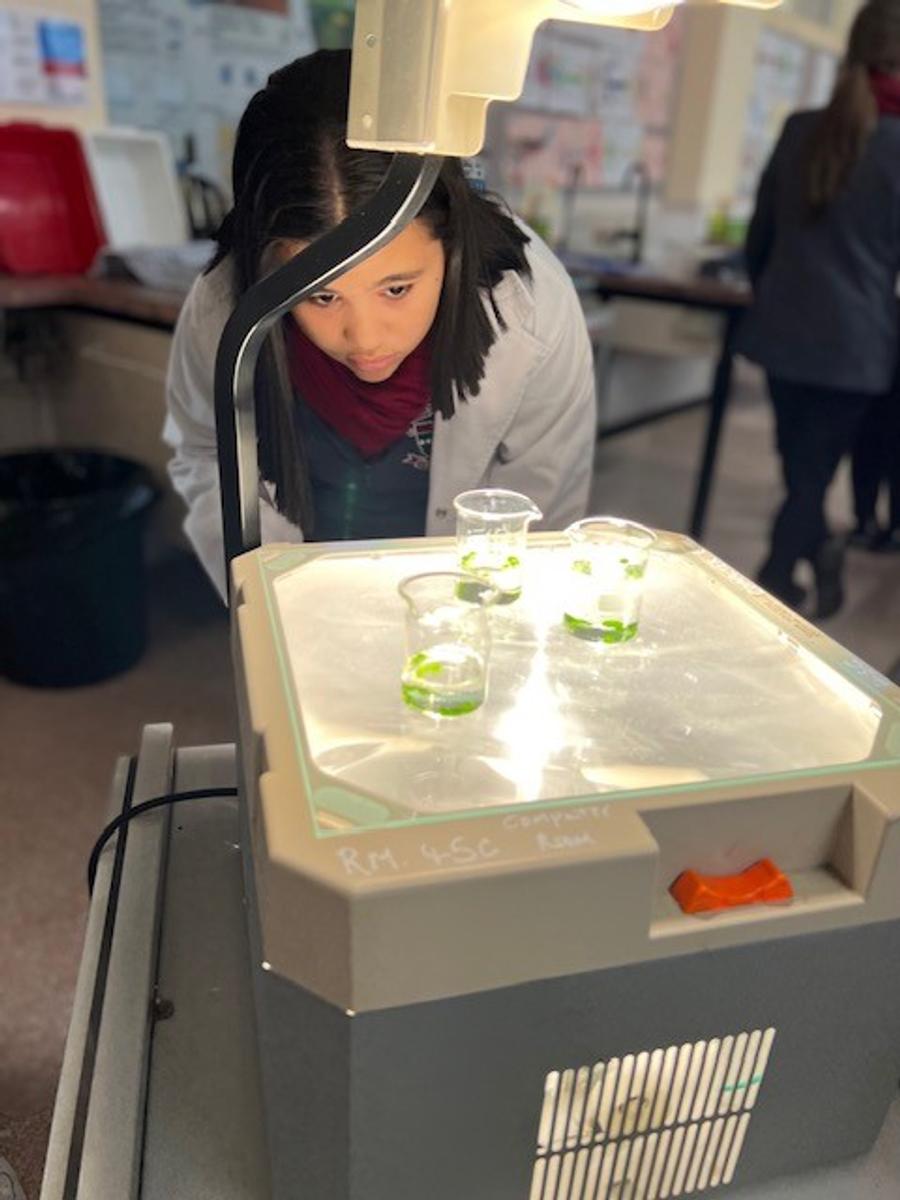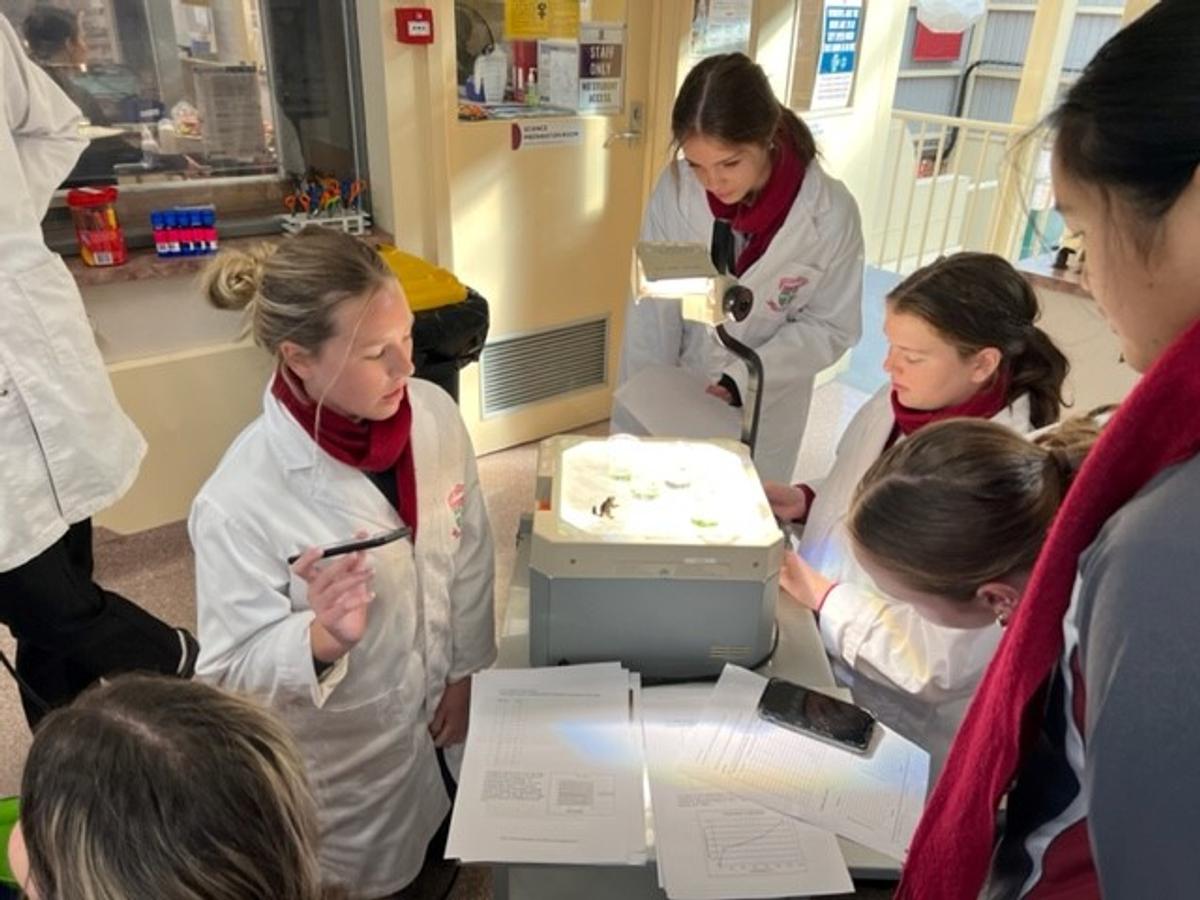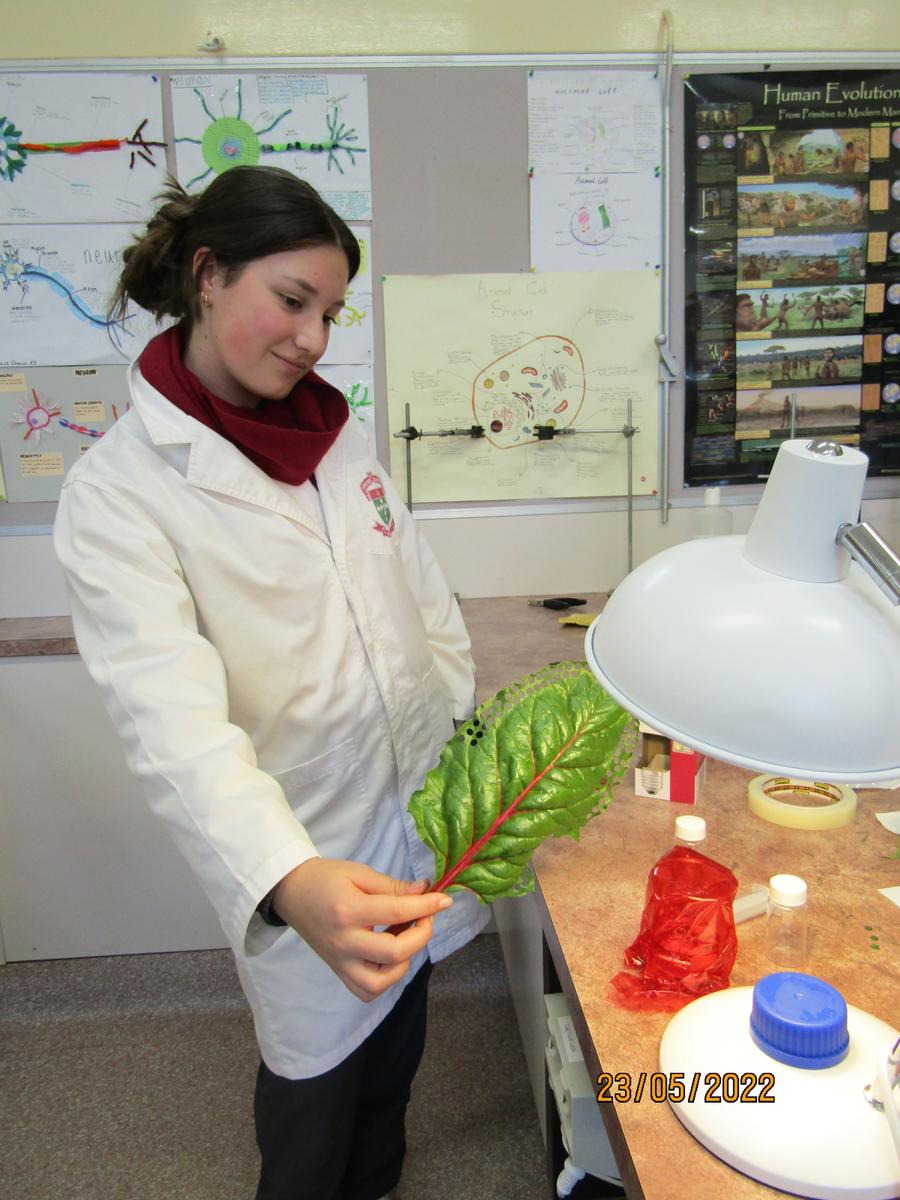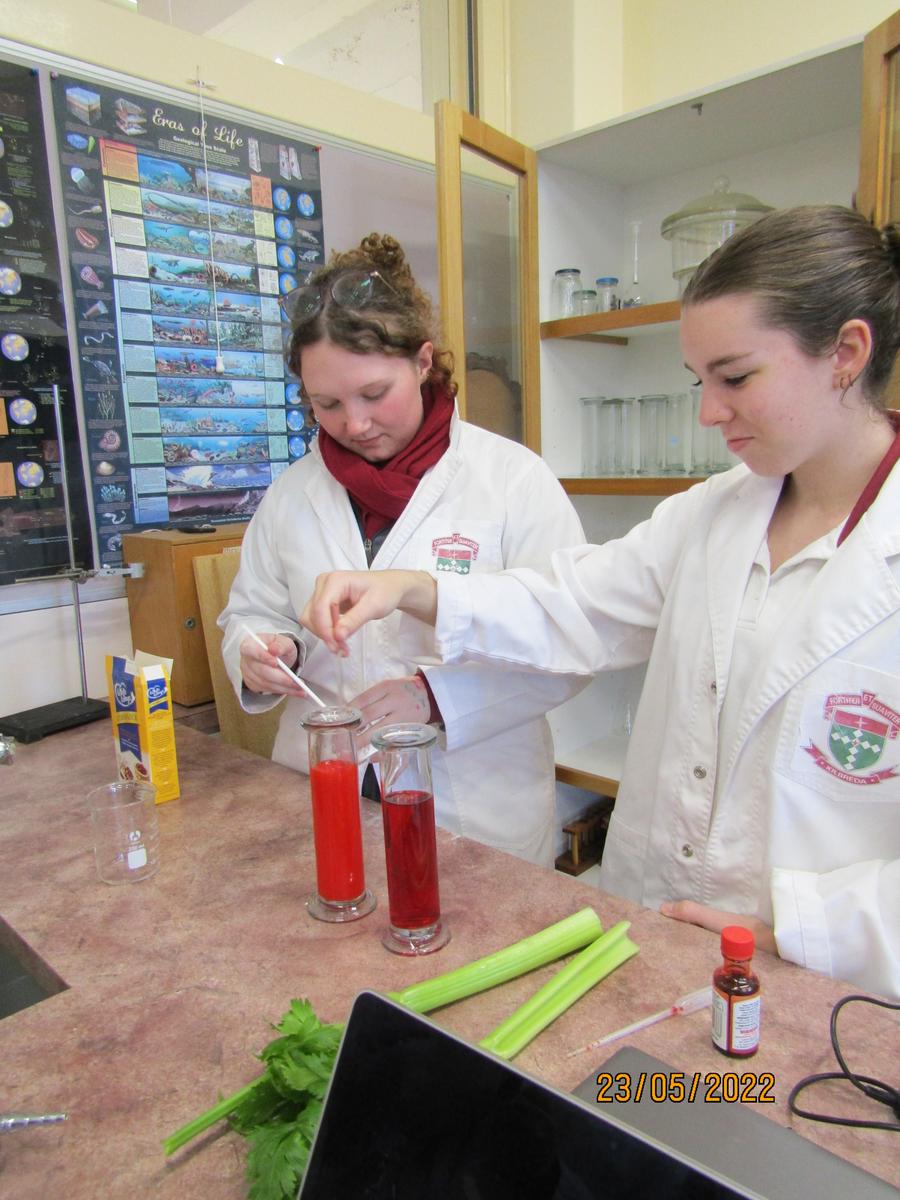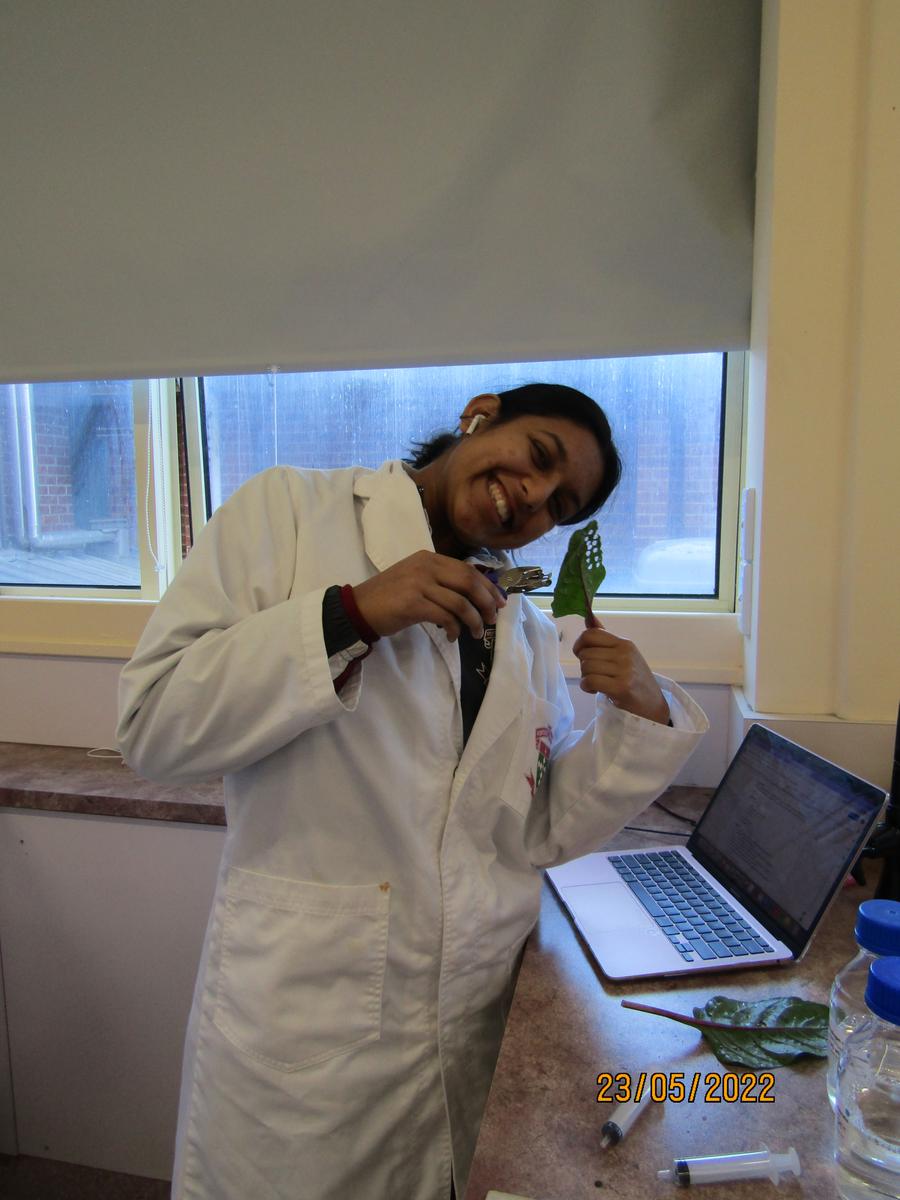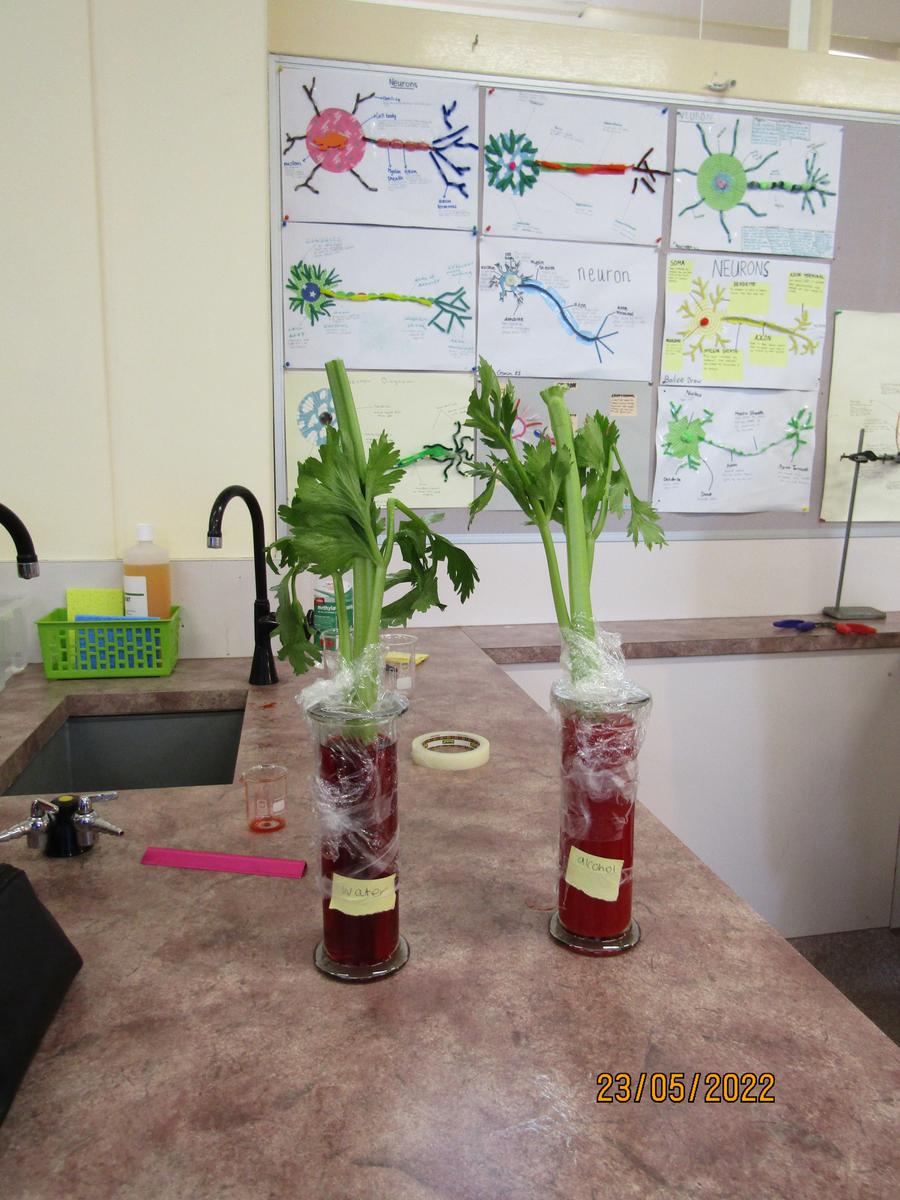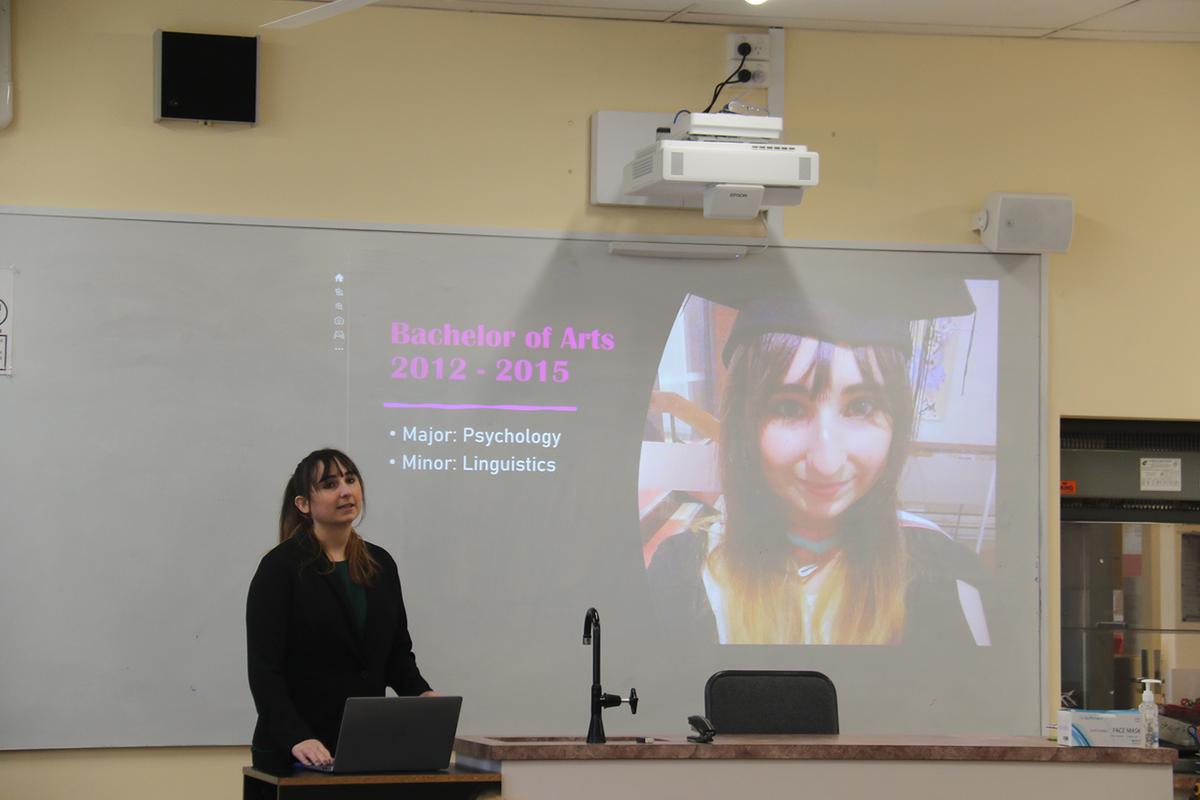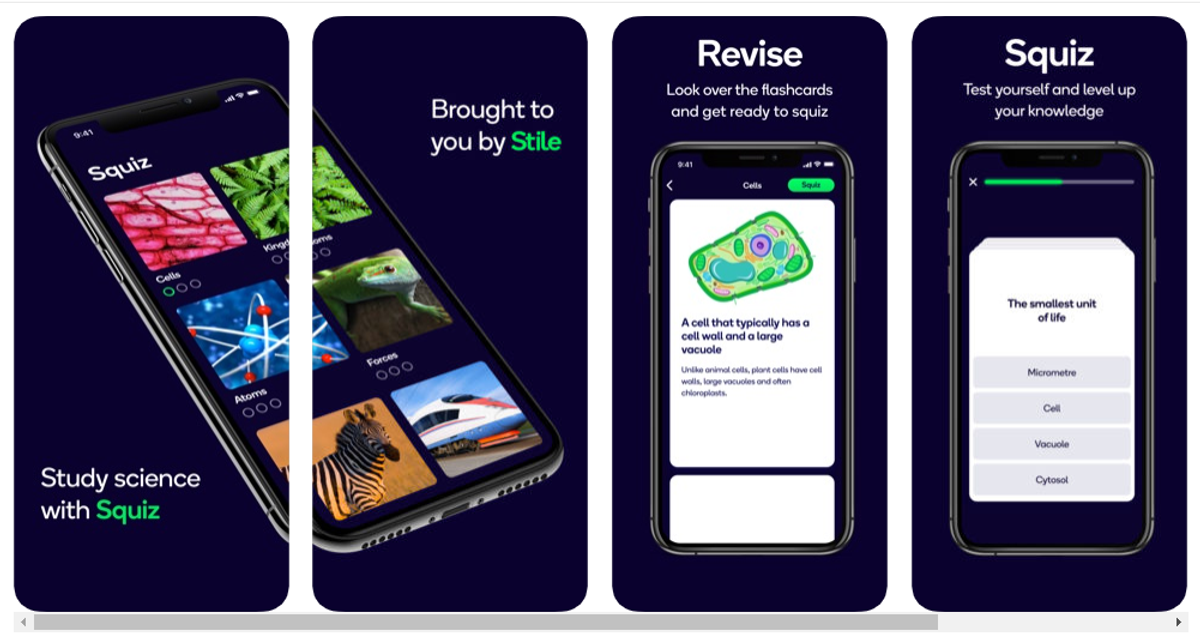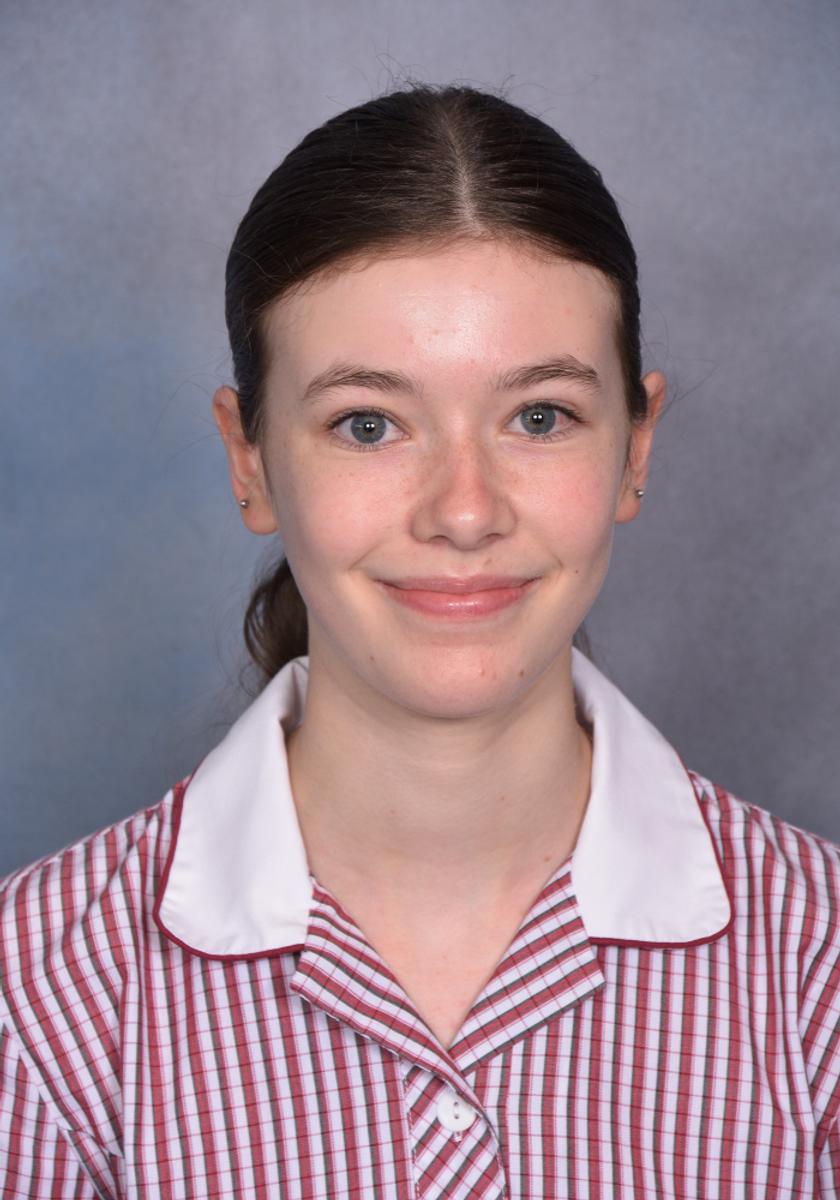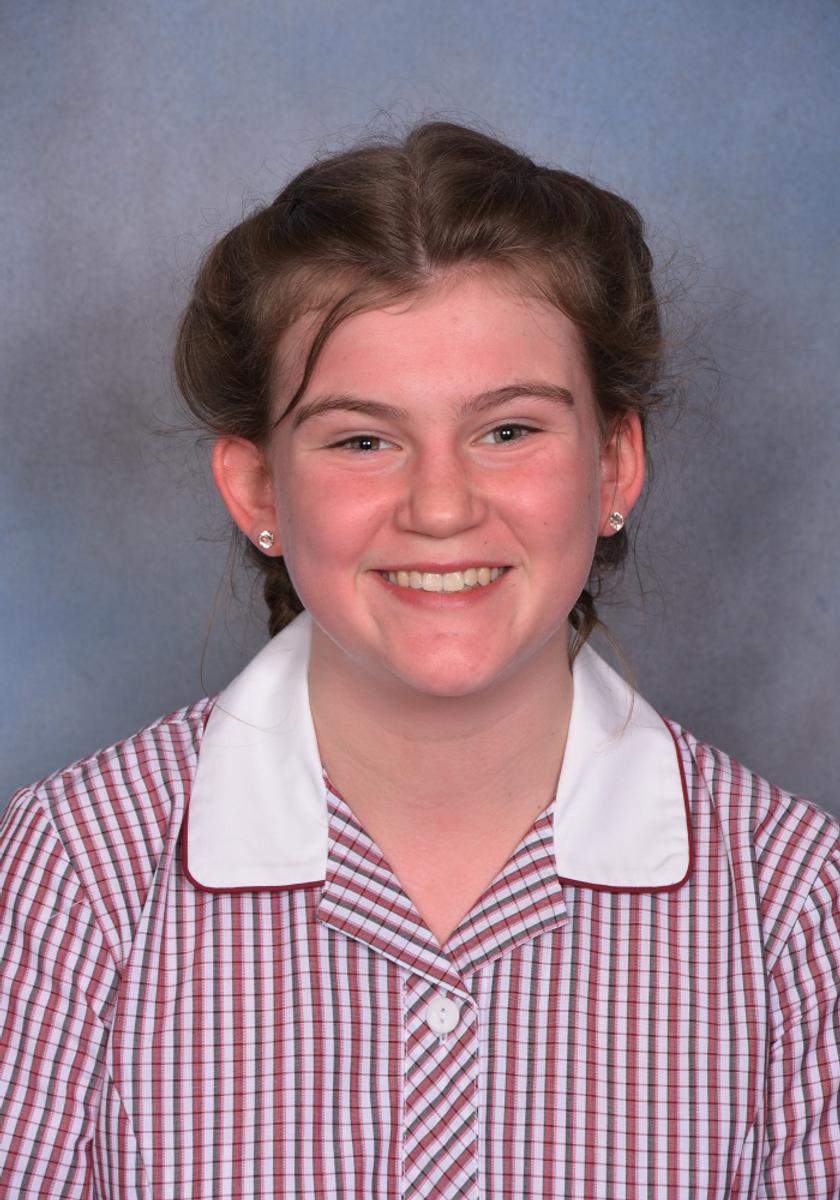Science

VCE Biology
How do scientific investigations develop understanding?
Central to all sciences is the scientific method as a process to follow to test hypotheses and draw conclusions from primary data. The Unit 1 Biology classes are currently designing their own scientific investigation related to their study of the structure and function of plants.
Students designed an investigation around one of three areas:
- Transpiration: the process of a plant releasing water vapour through their leaves through tiny openings called stomata
- Stomatal Density: how many stomata appear in a region of space on the leaf
- Photosynthesis: the process of a green plant converting carbon dioxide and water to simple sugars and oxygen gas.
Students were interviewed as they designed their tasks in the lab. Here are some reflections:
"We are investigating the rate of photosynthesis of spinach. We are seeing how the colour of light affects the rate of photosynthesis. To do this, we will place cellophane over a beaker of water that contains discs of the leaf. We will test the effect of red, blue, green and white light on the photosynthesis. The leaf discs rise faster to the surface when photosynthesis happens faster."
Renae, Neve
and Maddie
"We are trying to investigate the rate of transpiration using celery. We would like to see if the number of stomata affect the rate that transpiration occurs."
Leah and Greta
Leah and Greta came across a few problems while designing their investigation. They showed perseverance and determination in pushing ahead to refine their design. Such is the nature of scientific discovery!
"We are testing the rate of transpiration. The idea is, when we put celery in water, that the water will be easily drawn up through the celery. We have added cornflour to thicken another sample of water and will compare the amount of this mixture that is transpired by the celery. We will weigh each sample before and after testing for 24 hours and then draw our conclusions."
Mikayla and Jemima
"We are investigating whether the rate of transpiration of a plant is affected by light intensity. We will examine the transpiration that occurs in rhubarb leaves that are placed in a dark cupboard and with rhubarb leaves left in the light."
Hannah and Emma
"I am looking at how the rate of photosynthesis of a rhubarb plant will change when placed in different concentrations of Bicarbonate of Soda solutions."
Caitlyn
"I am testing whether the presence of alcohol in a solution has an effect on the rate of transpiration of a plant. I think this will likely reduce the transpiration observed."
Hannah
Medical Science and Psychology: Helen Rushby Presentation
On Friday 6 May, we finally had the chance meet face-to-face our CSIRO STEM Professional, Helen Rushby, who has been working with the College for 12 months.
Helen delivered a presentation to the class of Year 10 Medical Science and Psychology students. She explained her journey in Science both at school and university and what it is like to undertake a PhD. Helen explained the process of the scientific method through her research to test how a sense of smell affects protein leveraging in fruit flies and mice.
It was fascinating to hear Helen's insights and to hear the progression of her work. We are hoping to again host her later in the year to assist with brain dissections with the VCE Psychology classes.
The Squiz App
For a number of years, every Kilbreda student in Years 7 to 10 has had access to the 'Stile Library' of custom written lessons relating to contemporary issues in Science. Stile has been an extremely valuable tool for Science staff and students, enabling real time collaboration and feedback and simulated experiments from which students can draw conclusions.
Stile also provide a free app called Squiz, available from the app store. https://itunes.apple.com/au/app/squiz/id1348601101?mt=8
Once downloaded, the app contains a glossary and flashcards from every Victorian curriculum 7 to 10 Science topic with sample quizzes that interact with the user, based on their response. Students can select and learn any topic from 7 to 10 to explore concepts of interest. Once the app is fully downloaded, students can test themselves on topic definitions using quizzes that need no internet.
Many students make use of this app already, but for our Year 7 students and for anyone unaware of the app, please download it as it is a great revision tool, particularly for the Year 9 and 10 students as they prepare for semester examinations
Science Enhancement Opportunities and Achievements
Big Science Competition
On 6 May, 37 students from Years 7 to 10 participated in the Big Science Competition. Kilbreda students have participated in the annual competition, organised by Australian Science Innovations, for many years.
The competition consists of 30 challenging questions. Students complete the competition online and compete against students from around the nation. Congratulations to the following students who competed. We wish you well and await the results!
Year 7 | |
Annie | Bajram |
Aathira | Binoy |
Madeline | Russell |
Rosana | Smyth |
Amelie | Baker |
Emily | Gamble |
Grace | Fry |
Sofia | Gracias |
Pratima | Thomas |
Year 8 | |
Elyssya | Buyck |
Bella | Costante |
Jacinta | Crowley |
Amelia | Meure |
Isha | Gurung |
Sophie | McKeown |
Rhiannan | Marie-Jeanne |
Eloise | Holborn |
Chloe | Veneris |
Year 9 | |
Elysia | Gilmour |
Taylah | Bell |
Olivia | Murphy |
Grace | Cronin |
Amelia | Presnell |
Phoebe | O'Toole |
Year 10 | |
Lola | Martin |
Eliza | Wong |
Gabrielle | Smyth |
Bridgette | Veneris |
Renata | Brown |
Emily | Smith |
Hannah | Young |
Renae | Alesci |
Alicia | Noble |
Sienna | Hoult |
Emma | Stevens |
Marilyn | Vincent |
The Brain Bee Competition
The Australian Brain Bee Challenge (ABBC) is a competition for secondary school students in Year 10 to learn about the brain and its functions. Through this competition, students learn about neuroscience research, find out about careers in neuroscience and dispel misconceptions about neurological and mental illnesses.
Congratulations to Gabrielle Smyth on qualifying for Round 2 of the competition. This is the State Finals! Gabrielle will compete in this next level of the competition in July. Many thanks to Mr Simon Gurowski for coordinating this opportunity for students. Good luck, Gabrielle!
Melbourne University Girl Power in Engineering and IT Program
The Girl Power in Engineering and IT program, run by The University of Melbourne, gives female students insight into the world of Engineering and IT, while inspiring them about the possibilities of a career in the industry. The program runs over four years and includes a three-night camp at The University of Melbourne in Year 9, work experience in year 10 and a mentoring program in Years 11 and 12. As only 40 students are accepted into the program each year, places are extremely competitive and students must progress through to a video interview stage before final selections are made.
We are thrilled to congratulate Phoebe O’Toole in Year 9, for being accepted into the program this year! Phoebe is in good company, as two of our current Year 12 STEM Leaders, Lakmi Dabare and Rachel Hoppe are in the final year of the program. Congratulations, Phoebe. We are excited to hear of your experiences of the camp after the next term holidays!
The National Youth Science Forum (NYSF)
Are you a student currently in Year 11 with a passion for Science or a parent or a carer of such a student? The NYSF Program could be for you!
The NYSF Year 12 Program is an 11 day hybrid (digital and in-person) program designed to deliver insights into career options available in Science, Technology, Engineering and Mathematics (STEM) and to encourage continued studies in these fields. The program is delivered by youth, for youth. The program will run on weekdays between 10 to 24 January 2023 and will be delivered through a range of in-person and digital events.
At the program, participants will have opportunities to:
- participate in tours of science and technology facilities,
- learn about cutting edge research,
- engage with industry partners and research providers,
- learn about university and STEM career pathways,
- mix with other like-minded students from all over Australia, and
- network with former NYSF participants to further increase understanding of STEM-related study and career experiences.
Application and Dates
Applications are now open and close on 14 August 2022.
Cost and Sponsorship
For more details about the program, please see HERE. As the two-week program is quite costly, student sponsorship is available from the Rotary Club of Mordialloc.
Please contact Jacinta Devlin at jacinta.devlin@kilbreda.vic.edu.au for more information on the program and about how to apply for sponsorship for this terrific opportunity!
Jacinta Devlin
Learning Leader:
Science
